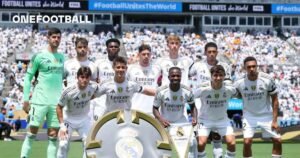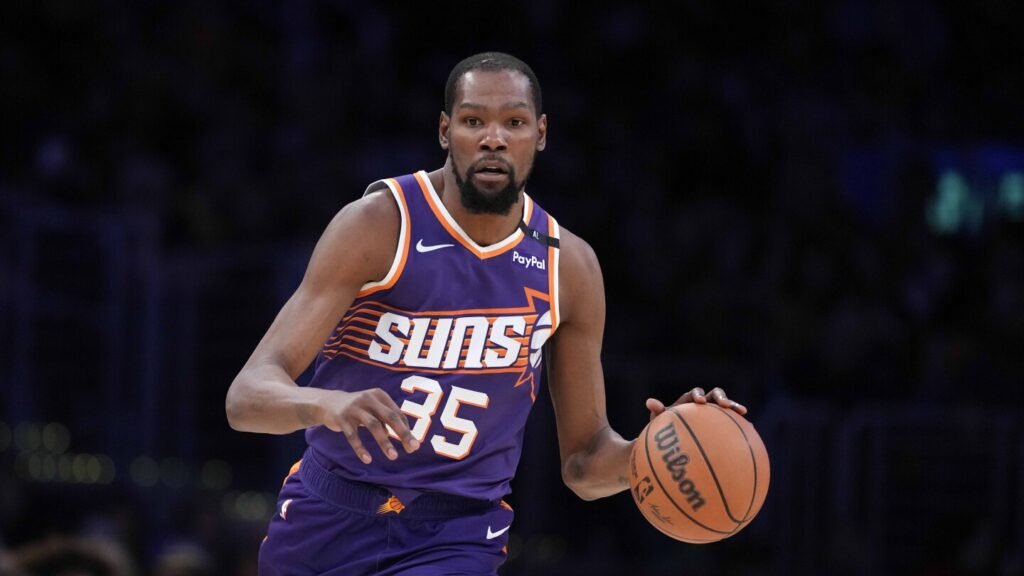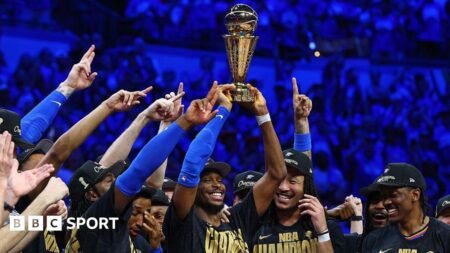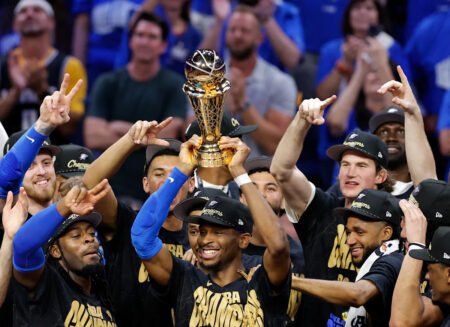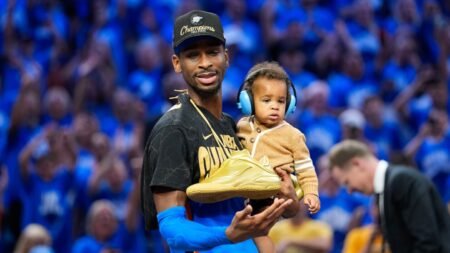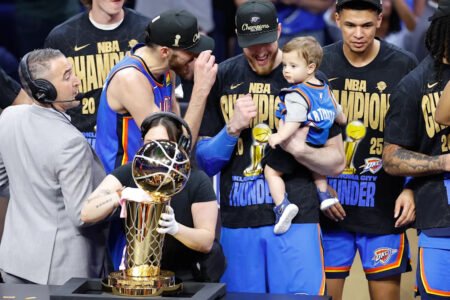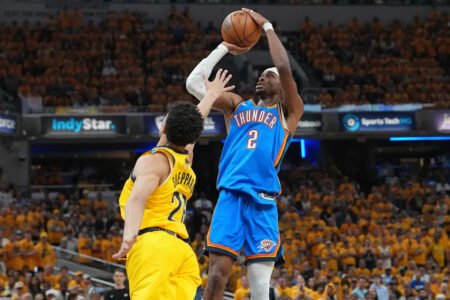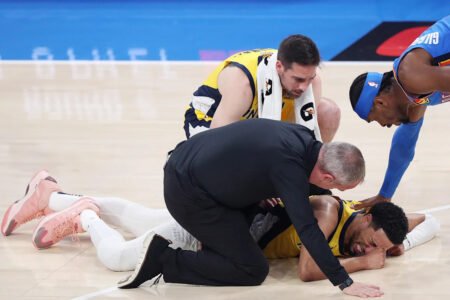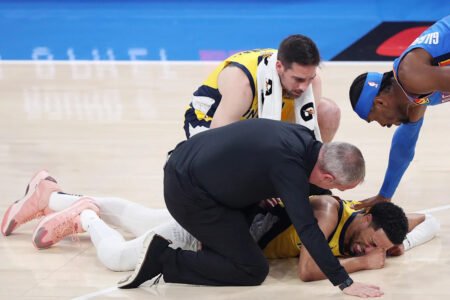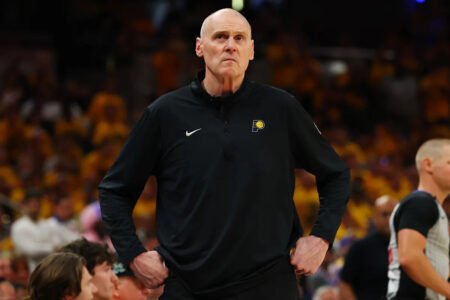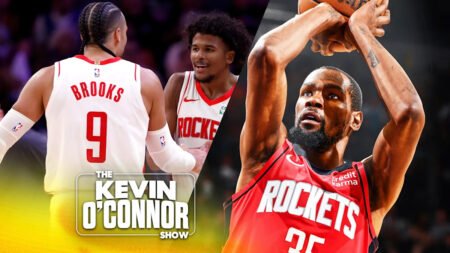On the day that two teams who were patient and calculating in building their cores to the level where they would face off in Game 7 of the NBA Finals, the Houston Rockets went all-in on accelerating their timeline.
After weeks of negotiations, Phoenix has agreed to trade Durant to Houston, giving it the needed scorer in its half-court offense that was clearly lacking in their first-round exit at the hands of the Warriors. The Suns got back a couple of quality players and a first-round pick — not near what they traded away to get Durant, but not a bad haul in return, considering the market.
Who won and who lost in all this? Let’s break it down, starting with the details of the trade itself (which can’t officially be completed until July 6 because of Jalen Green’s extension):
Houston receives: Kevin Durant
Phoenix receives: Jalen Green, Dillon Brooks, the No. 10 pick in the 2025 NBA Draft, five second-round picks
Winner: Kevin Durant
How much Durant was planning an exit from Phoenix before the Suns started dangling him at the trade deadline (and almost trading him to the Warriors) is up for debate, but after that there was no question what was going to happen this summer.
What Durant wanted was to control the process. He wanted to get to a team that would offer him a two-year contract extension north of $100 million, and where he could contend.
Check and check.
Durant fills a specific need for the Rockets as a half-court scorer (more below on that), and the Rockets are expected to pony up and pay the man.
Just a reminder that in the NBA, the biggest stars almost always get what they want.
Winner: Houston Rockets
Houston knew what it needed to contend now.
The Rockets were the 52-win No. 2 seed in the West last season, a team built on a quality young, athletic core playing pressure defense — just like the two teams playing in the Finals — but they lacked scoring punch in the half court (Houston was 22nd in the league in half court offense). During the regular season they covered this up with defense, transition opportunities, and offensive rebounds from Steven Adams (who just got his contract extended). However, in the playoffs against an experienced and talented Warriors team, the Rockets were forced to play in the half court and couldn’t score enough to win.
Kevin Durant improves the Rockets’ half-court offense immensely. The man may be 37 next season, but he is still a walking bucket who averaged 26.6 points a game last season and shot 43% from beyond the arc.
Having to trade away Brooks dings the Rockets’ defense a little, and now more falls on the shoulders of Amen Thompson defensively. Still, it should not be a dramatic drop-off. Additionally, the fact that the Rockets held onto young players with potential, such as Reed Sheppard and Cam Whitmore, is a win.
However, there is risk here for the Rockets, particularly in the long term. The two teams playing in Game 7 of the NBA Finals chose to be patient with their depth, letting it grow and coalesce, rather than making the kind of trade that would rapidly accelerate their timeline (trades for Pascal Siakam or Alex Caruso were about filling in gaps, not bringing in a superstar). Houston went the opposite direction — was this at the urging of owner Tilman Fertitta? — and if Durant is healthy and meshes, then this move looks brilliant. If injuries, age or other issues lead to a bumpy road, then Houston has pushed all in and not won the hand.
There are some hard financial decisions ahead for this team after they extend Durant, especially once Thompson’s second contract kicks in for the 2027-28 season. However, those are problems the Rockets can worry about later. Right now, they can focus on winning a ring.
Loser: Game 7 of the NBA Finals
One of Adam Silver’s missions has been to refocus the NBA on the court, rather than on the transaction wire. The reason is obvious: The league knows how to monetize games, it makes nothing from a social media debate about a trade.
The Durant trade was the biggest sports news of the day and dominated the discussion of what should be a thrilling Game 7, focusing the sports world on Durant and his fit in Phoenix.
There will still be plenty of talk about the game, but I guarantee you this: The story you are reading now will draw far more eyeballs than the stories later tonight out of Game 7, regardless of what happens.
What can the NBA do about this? Nothing, really. The league could put a moratorium on moves before the Finals end, but teams will already be talking anyway (this trade can’t be finalized until July 6 and we’re talking about it). The league could try to space out the time between the Finals and the NBA draft, but that would mean either going deeper into the summer for teams (pushing back events like Summer League) or reducing the number of regular-season games, which is a dead-on-arrival discussion right now.
Just don’t think the league is happy about the timing of this trade.
Winner (relatively): Phoenix Suns
Listening to Phoenix owner Mat Ishbia speak, there was legitimate concern that the Suns might try to trade Durant for other win-now players rather than taking a step back, retooling the roster, and thinking longer term. This trade was a longer-term move, acquiring a young player in Green and the No. 10 pick, as well as all those future second-round picks.
This was not the haul the Suns had to give up to get Durant (Mikal Bridges, Cam Johnson and four first-round picks), but considering KD’s current market, this was as good as they were going to do. This is a win for the Suns, but more of a solid double in the gap than a home run.
There is still a lot of roster work to do in Phoenix: Booker, Beal, Green, Brooks, and Grayson Allen are all 2/3 wings, now a crowded position in Phoenix. There are more trades and roster tweaks to come. But this deal was about as good as they were going to do.
Loser: Miami Heat
Miami isn’t much of a loser here. Today, they stand exactly where they did yesterday, still at a crossroads with a roster that is neither good enough to contend nor bad enough to tank.
The fact that they are still standing at that crossroads is why they slip slightly into the loser category — but if I were standing in Pat Riley’s Italian loafers, I would have made the same call. The reported sticking point in talks was the inclusion of promising young center Kel’el Ware — the Rockets wanted him, the Heat would not give him up. While it’s easy to question not giving up a rookie who played 22 minutes a night for Kevin “freakin” Durant, the reality is that’s trading a promising 21-year-old for a 37-year-old with an injury history is bad business. Miami rightfully thought that wasn’t worth the risk.
Still, without Durant, the question remains in Miami: What’s the plan?
Read the full article here


